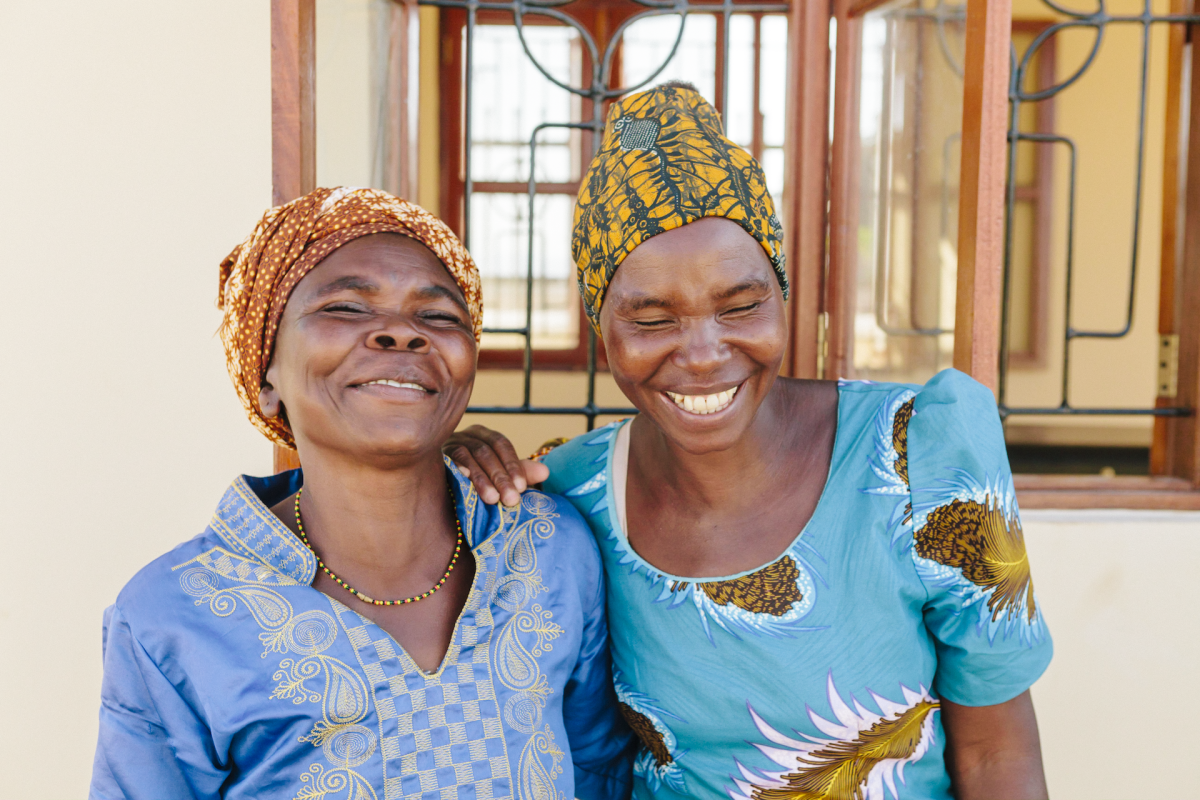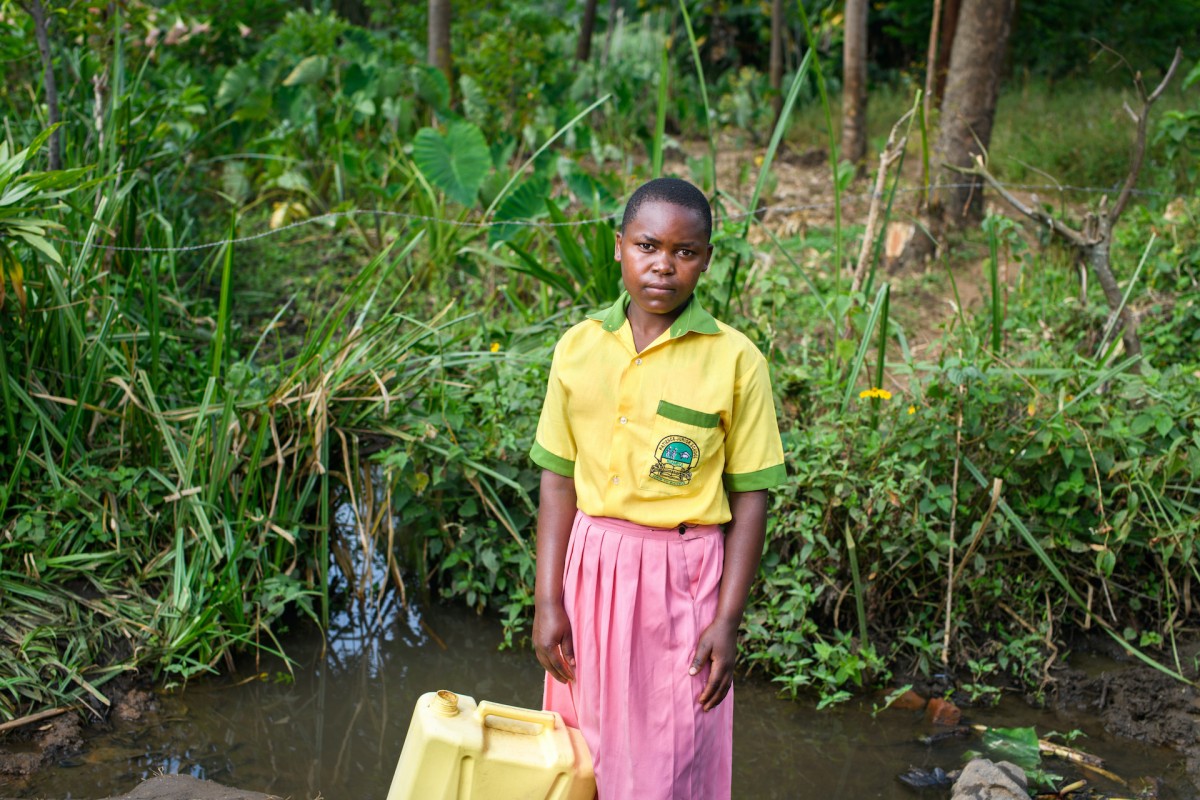WASH & Learn
Improve water, sanitation and hygiene facilities for girls in schools and the surrounding communities by constructing bathrooms and raising awareness.

About the WASH & Learn programme
In our WASH & Learn programme, we provide girls, women, schools and communities with knowledge and skills to be able to make informed decisions about their lives and improve their well-being.
Despite the importance of water, sanitation and hygiene (WASH) facilities in schools, where WASH services are in place, they are often not in line with the needs of the people who use them, or poorly maintained. This poses a risk for women and girls – who might not use them due to a lack of a safe environment.
Fact:
Globally, almost one in five schools do not have access to clean water
Almost a quarter of schools do not have a decent toilet
More than one third of schools do not have access to soap for handwashing

Impact of the programme WASH & Learn
The focus of the programme is WASH related activities, but advocacy and economical and social empowerment is also integrated in the programme approach.
By providing girl-friendly access to WASH facilities at schools and at households, the health situation of the community will improve structurally. Specific attention to schools has proven advantages; children- early adopters- learn more easily than adults and they are quicker in adjusting their behaviour. Once children have adopted certain hygienic practices e.g. hand-washing or using a clean latrine, they easily continue this behaviour when they are adults.
Therefore, the WASH and Learn Programme will take schools as the focal point in the community yet also work on WASH facilities and behavioural change at household level for a full hygiene continuum.
Contributing to Sustainable Development Goal (SDG):
- SDG 6: Clean water and sanitation - Ensure access to water and sanitation for all
Approach of the programme
We offer innovative approaches to establish durable water and sanitation facilities in schools and communities. For example, school management is trained to identify risks related to infrastructure before and after the construction. And the schools are trained on how to make strong financial plans. An example of this is income generating activities such as growing and selling agricultural products to increase the school budget.
Showing girls and boys how to make reusable menstrual hygiene pads brings the discussion of menstrual hygiene out in the open, leading to reduced stigma and better menstrual hygiene. To improve menstrual health, women and girls need to have access to comprehensive information as well as appropriate services and affordable products.
We advocate to government and other relevant stakeholders to sustainably improve WASH services for all in schools and communities. And we also promote local entrepreneurial, business- and employment opportunities for women in the WASH sector.
If you want to read more about WASH & Learn:
- Paper on the learnings on Cost Recovery Planning and Risk Assessment and Mitigation
- Paper on Menstrual Health, School Health Clubs and the experiences of the WASH & Learn Programme
- Paper on Community Clustering
Budget: €1.045.000, Simavi budget: €223.000, Duration: 3 years, Location: Tanzania and Uganda
Partners
The programme works with a diverse range of enthusiastic partners, who all bring in their own expertise and knowledge. The background of the partners is focused around WASH and women empowerment. Where needed, the programme engages with local experts to bring additional skills and knowledge to the consortium.
The story of Mandiga
In Tanzania, WASH and Learn established a partnership with Mohammed Hammie, a Human Rights, Water and Sanitation journalist and storyteller for social change. The partnership was inspired by his book ‘Maji Mandiga’ that tells a story about a woman, known as Mandiga Lijama who is fighting for reliable access to water to her village.
Additional to ensuring access to water, the books touched upon other hidden values that are not spoken of. The book raises the issue of violence against partners, the responsibility of leaders to be transparent and accountable, and the importance of overcoming shame and fear to speak up about developmental challenges. Simavi worked with Mohammed to translate the book into a comics book, that is now officially part of the school curriculum in Tanzania.
Following the publication of the book, offline events were organised in Tanzania where local heroes, women who advocate for WASH, were identified and spotlighted to share their story with their communities and the world. The story of Mandiga functioned as a starting point for discussion on how to successfully reach your goals.
Downloads of both publications are made available for free by Mohammed Hammie. Voluntary donations are greatly appreciated. All proceeds will be invested in Simavi’s programmes.
Supporters of the programme
Do you want to know more about our programmes? Our programme team is happy to support!
Other programmes
WASH SDG
The goal of the WASH SDG programme was to sustainably improve access to, and use of, safe drinking water for at least 450,000 people, sanitation for at least 2 million people and improve the hygiene behaviours of 1.6 million people.
WASH First
Prevent the spread of Covid-19 by promoting hygiene awareness and improving access to safe and clean water, toilets and washing facilities.
Watershed – empowering citizens
Improve water, sanitation and hygiene services in areas where water resources are limited or inadequate.






